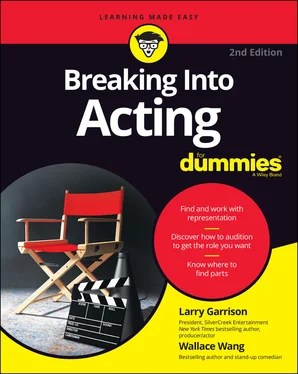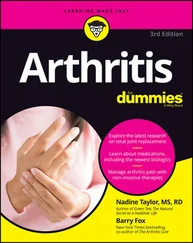Under your theater credits, be sure to identify any roles where you were an understudy rather than the principle performer. Nobody will fault you for being an understudy, but people may get upset if your resume gives the impression that you played a major role when you really didn’t.
 Be sure to include information about your college education if your degree is in an acting or performance-related field such as drama, broadcasting, or public speaking. If you didn’t major in an acting-related field, don’t bother listing your college history because no one cares if you graduated from Harvard or Yale in engineering or English literature. An education in acting shows that you’ve studied acting, but actual working experience beats education every time.
Be sure to include information about your college education if your degree is in an acting or performance-related field such as drama, broadcasting, or public speaking. If you didn’t major in an acting-related field, don’t bother listing your college history because no one cares if you graduated from Harvard or Yale in engineering or English literature. An education in acting shows that you’ve studied acting, but actual working experience beats education every time.
Your knowledge of special skills
Sometimes, an actor who knows how to juggle or can do different dialects lands a role simply because no other actor possesses the special skill necessary for that particular role. So in a separate section of your resume, be sure to list all the unique skills that you can do extremely well. Here are some common types of skills that may come in handy:
Foreign languages: Only include this information if you speak the language (or languages) fluently. (Two years of high school Spanish doesn’t count.) Also, be sure to list any accents that you can do, such as a Southern or a British accent.
Athletic skills: You may list skills, such as martial arts, sky-diving, juggling, skiing, fencing, gymnastics, horseback riding, or riding a unicycle.
Artistic skills: Perhaps you can play a musical instrument, know how to create an ice sculpture, or have experience with ballroom dancing. If you can sing, list your vocal range such as alto, tenor, and so on.
Unusual skills: This skill set can include pretty much anything. Some examples are shuffling cards like a card shark, trick shooting with a pistol, twisting balloons into animals, or impersonating a celebrity.
In the world of theater, list your special skills selectively. Two of the most important skills to include (if you can do them well) are singing and dancing because those skills can help you get cast in a musical.
Unlike theater resumes that should only list those special skills you can do on stage, film and television resumes should list all the unique skills you possess — whether it’s mountain climbing, pole vaulting, or alligator wrestling. You never know when any of your special skills may come in handy for a film or television role, so don’t be shy about any of your abilities.
 Make sure that you can do those special skills extremely well. For example, if you only took one year of karate classes, you probably wouldn’t want to list martial arts on your resume as a special skill. However, if you’re close to getting a black belt in karate, you can probably get away with listing it.
Make sure that you can do those special skills extremely well. For example, if you only took one year of karate classes, you probably wouldn’t want to list martial arts on your resume as a special skill. However, if you’re close to getting a black belt in karate, you can probably get away with listing it.
Your acting resume is meant to highlight your acting experience and qualifications, so don’t list anything on your resume that detracts from your acting career or experience. Here are some items to avoid listing:
Your age: Usually give an age range with a span of about ten years. If you’re 65, but you look 50–60, you’re better off choosing what you look like.
Salary requirements: Never do that.
Career objectives: Everyone reading your resume already knows you want to act.
 Many actors exaggerate their past experiences because they falsely believe that doing so makes them look more credible and professional in the eyes of a casting director. Casting directors know that everyone has to start out as a novice and that even the biggest stars were once beginners with no credits, too. So don’t be ashamed of how little you may have accomplished so far, instead, revel in the fact that you’re a “fresh talent with a different look.”
Many actors exaggerate their past experiences because they falsely believe that doing so makes them look more credible and professional in the eyes of a casting director. Casting directors know that everyone has to start out as a novice and that even the biggest stars were once beginners with no credits, too. So don’t be ashamed of how little you may have accomplished so far, instead, revel in the fact that you’re a “fresh talent with a different look.”
Even worse than exaggeration is outright lying. Although people may stretch the truth a bit when creating a corporate resume, lying on an acting resume can get you in serious trouble in show business. If you lie about performing in a film, casting directors can often verify your claims by researching online or talking to people in the biz they know.
One of the most popular show business websites is the Internet Movie Database ( www.imdb.com ), which allows anyone to search a film or television production to find out about an actor’s, director’s, or producer’s previous experience. If you list a film or TV credit, make sure that it’s real, or else someone can easily find the truth with just the click of a mouse. Lying simply brands you as an untrustworthy actor, and if a casting director can’t trust you to tell the truth about your acting experience, why should he trust that you’ll be able to act in a role?
 Casting directors are people, and most people respect honesty (even if they’re not always very honest themselves). If you lie and get caught, you’re liable to hurt your career worse than any amount of lying would’ve been able to help it.
Casting directors are people, and most people respect honesty (even if they’re not always very honest themselves). If you lie and get caught, you’re liable to hurt your career worse than any amount of lying would’ve been able to help it.
Your acting resume should evolve as you train and gain experience in the biz. Just as you should update your head shot every time your look changes, you should update your resume every time you land another good role.
 By tailoring your resume for specific roles, you can show the casting director that you’ve either done similar roles before or are fully qualified for the current role you want to be cast in. The goal of your resume is to highlight what you’ve done and exhibit all your special skills.
By tailoring your resume for specific roles, you can show the casting director that you’ve either done similar roles before or are fully qualified for the current role you want to be cast in. The goal of your resume is to highlight what you’ve done and exhibit all your special skills.
This section takes a look at what credits you should highlight on your acting resume as a beginner, as an intermediate, and as a veteran actor. Use these samples to serve as a guide for creating your own beginner’s acting resume. Then, when you land that first big role, you can update your resume, using the intermediate actor’s example. Then, when you finally hit it big and are on the verge of becoming a major celebrity, you can use this chapter to put together your veteran actor’s resume. After that, you’ll be so famous that casting directors and producers will be knocking your door down to offer you roles, and you won’t even need to bother with a resume anymore!
 There are no fixed set of rules for creating a resume. Use these examples to stir your imagination and creativity. The most important part about creating a resume is to make your resume look impressive whether you use specific words, highlight words in bold face or unique fonts, or rearrange your skills and experience so it appears you have the exact background and skills needed for the current role you’re auditioning for.
There are no fixed set of rules for creating a resume. Use these examples to stir your imagination and creativity. The most important part about creating a resume is to make your resume look impressive whether you use specific words, highlight words in bold face or unique fonts, or rearrange your skills and experience so it appears you have the exact background and skills needed for the current role you’re auditioning for.
Note: The sample resumes shown herein are included for demonstration purposes only and aren’t the actual or true resumes of the individual resume’s holder. Furthermore, the names used herein are fictitious and any relation to any person living or dead is purely coincidental.
Читать дальше

 Be sure to include information about your college education if your degree is in an acting or performance-related field such as drama, broadcasting, or public speaking. If you didn’t major in an acting-related field, don’t bother listing your college history because no one cares if you graduated from Harvard or Yale in engineering or English literature. An education in acting shows that you’ve studied acting, but actual working experience beats education every time.
Be sure to include information about your college education if your degree is in an acting or performance-related field such as drama, broadcasting, or public speaking. If you didn’t major in an acting-related field, don’t bother listing your college history because no one cares if you graduated from Harvard or Yale in engineering or English literature. An education in acting shows that you’ve studied acting, but actual working experience beats education every time. Make sure that you can do those special skills extremely well. For example, if you only took one year of karate classes, you probably wouldn’t want to list martial arts on your resume as a special skill. However, if you’re close to getting a black belt in karate, you can probably get away with listing it.
Make sure that you can do those special skills extremely well. For example, if you only took one year of karate classes, you probably wouldn’t want to list martial arts on your resume as a special skill. However, if you’re close to getting a black belt in karate, you can probably get away with listing it.










